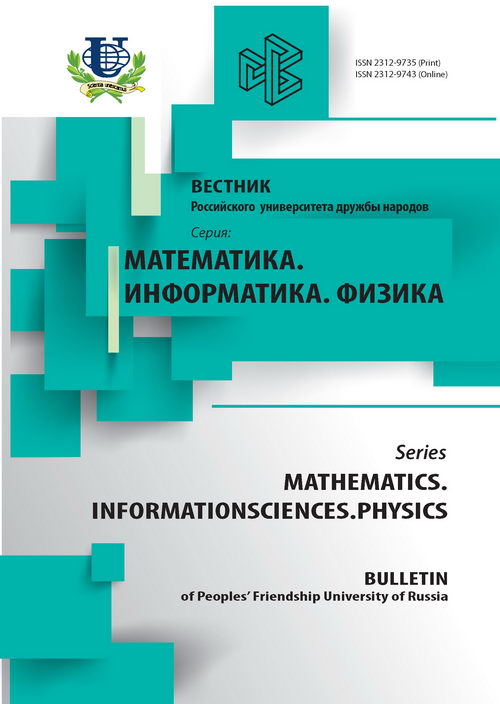О моделях с парциальным распределением точности
- Авторы: Малых М.Д.1
-
Учреждения:
- Московский государственный университет им. М.В. Ломоносова
- Выпуск: № 3 (2013)
- Страницы: 76-80
- Раздел: Статьи
- URL: https://journals.rudn.ru/miph/article/view/8416
- ID: 8416
Цитировать
Полный текст
Аннотация
Большинство моделей, описывающих какие-либо колебательные процессы, имеют парциальное распределение точности, т.е. эти модели описывают эволюцию нормальной моды тем хуже, чем выше её номер. Поэтому вопрос о сходимости ряда по нормальным волнам, занимающий центральное место при классическом подходе, неизбежно выводит за рамки применимости модели. Традиционно в этом видят недостаток моделей — ещё одно из многих затруднение на пути доказательства сходимости ряда и существования классического решения. В этой статье предложен новый подход к описанию таких моделей. Изложение проиллюстрировано конкретным примером простейшей модели с парциальным распределением точности — задачи о колебании струны. В таких задачах всегда имеется некоторая неопределённость в начальных условиях. Так, обычно профиль начальных скоростей, используемый для описания удара молоточком, считают ступенчатой функцией или «шапочкой», но можно рассмотреть и целый класс подходящих профилей, а, следовательно, и целое семейство начально-краевых задач. Эта неопределённость в начальных условиях позволяет оценить ошибку для каждой моды в отдельности. Как и следовало ожидать, ошибка растёт при увеличении номера гармоники и даже становится бесконечно большой в пределе. Все решения рассматриваемого семейства задач можно разложить в ряд по нормальным волнам, в нем младшие моды имеют близкие амплитуды. Это позволяет сохранить все классические утверждения о младших модах, но избежать трудного и выводящего за рамки модели исследования сходимости ряда по нормальным волнам.
Ключевые слова
Об авторах
Михаил Дмитриевич Малых
Московский государственный университет им. М.В. Ломоносова
Email: malykhmd@yandex.ru
Факультет наук о материалах
Список литературы
- Курант Р., Гильберт Д. Методы математической физики. — М.-Л.: ГИТТЛ, 1951. — С. 476.
- Тихонов А.Н., Самарский А.А. Уравнения математической физики. — М.: ГИТТЛ, 1953. — С. 679.
- Свешников А.Г., Могилевский И.Е. Математические задачи теории дифракции. — М.: ФФ МГУ, 2010. — С. 308.
- Ларин А.А. Зарождение математической физики и теории колебаний континуальных систем в «Споре о струне» // Вестник Национального технического университета «Харьковский политехнический институт». История науки и техники. — 2008. — Т. 8. — С. 89–97.
- Ладыженская О.А. Краевые задачи математической физики. — М.: Наука, 1973. — С. 407.
Дополнительные файлы















